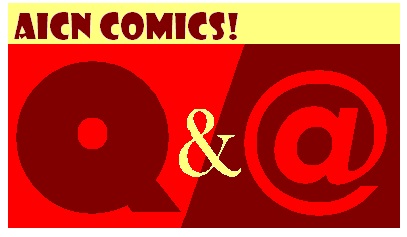
@’s by Writer Marc Guggenheim!!!
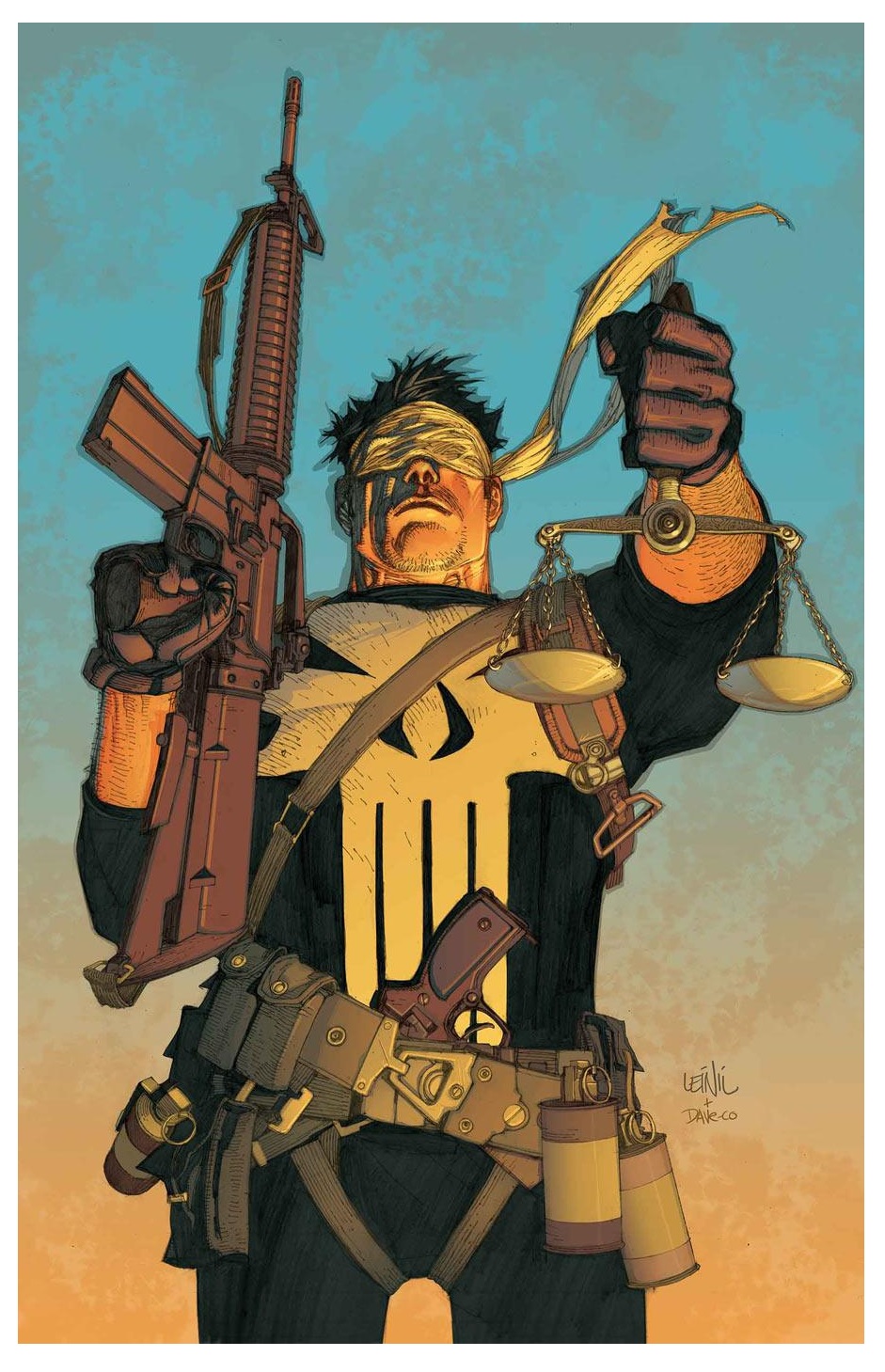 Matt Adler (MA): So I understand that you have two projects dropping in September, and the first is the TRIAL OF THE PUNISHER two-part miniseries.
Matt Adler (MA): So I understand that you have two projects dropping in September, and the first is the TRIAL OF THE PUNISHER two-part miniseries.MARC GUGGENHEIM (MG): Correct, and that's with Marvel Comics.
MA: I also understand this story has been kind of a long time in the making, is that right?
MG: Yeah, this has definitely been a long-term sort of project. (laughs) And it's actually the very first thing I ever wrote for Marvel, and I wrote it like 7 years ago.
MA: And you've never really given up on it, despite several rewrites, changing editorial hands….
MG: Yeah, that's absolutely right. I've been trying to push this one through for 7 years now.
MA: So why was this something you were determined to see published?
MG: Well, for several reasons. The first is, I always felt it was a really strong story. I think the people at Marvel felt it was a really strong story, because it really kicked off my career at Marvel. The other thing is that half of it was already drawn, and it was drawn by Leinil Yu, and the artwork is absolutely beautiful, so it would kind of a crime if the world didn't get the chance to see the incredible stuff that Leinil has done.
MA: Someone else is coming on to help with the second issue, is that right?
MG: That's right. His name is Mico Suayan.
MA: How did he come on board?
MG: Leinil actually handpicked him, and Mico's style is sort of very reminiscent of Leinil's. I think even more so in this particular iteration, because he's following the look that Leinil has set up. And it's really cool, his stuff is absolutely fantastic. And I think Mico, because Leinil handpicked him, has really dug up, and tried to live up to Leinil's expectations and the vote of confidence Leinil has given him.
MA: I'll confess to not being an expert on Punisher continuity…
MG: And that is totally okay.
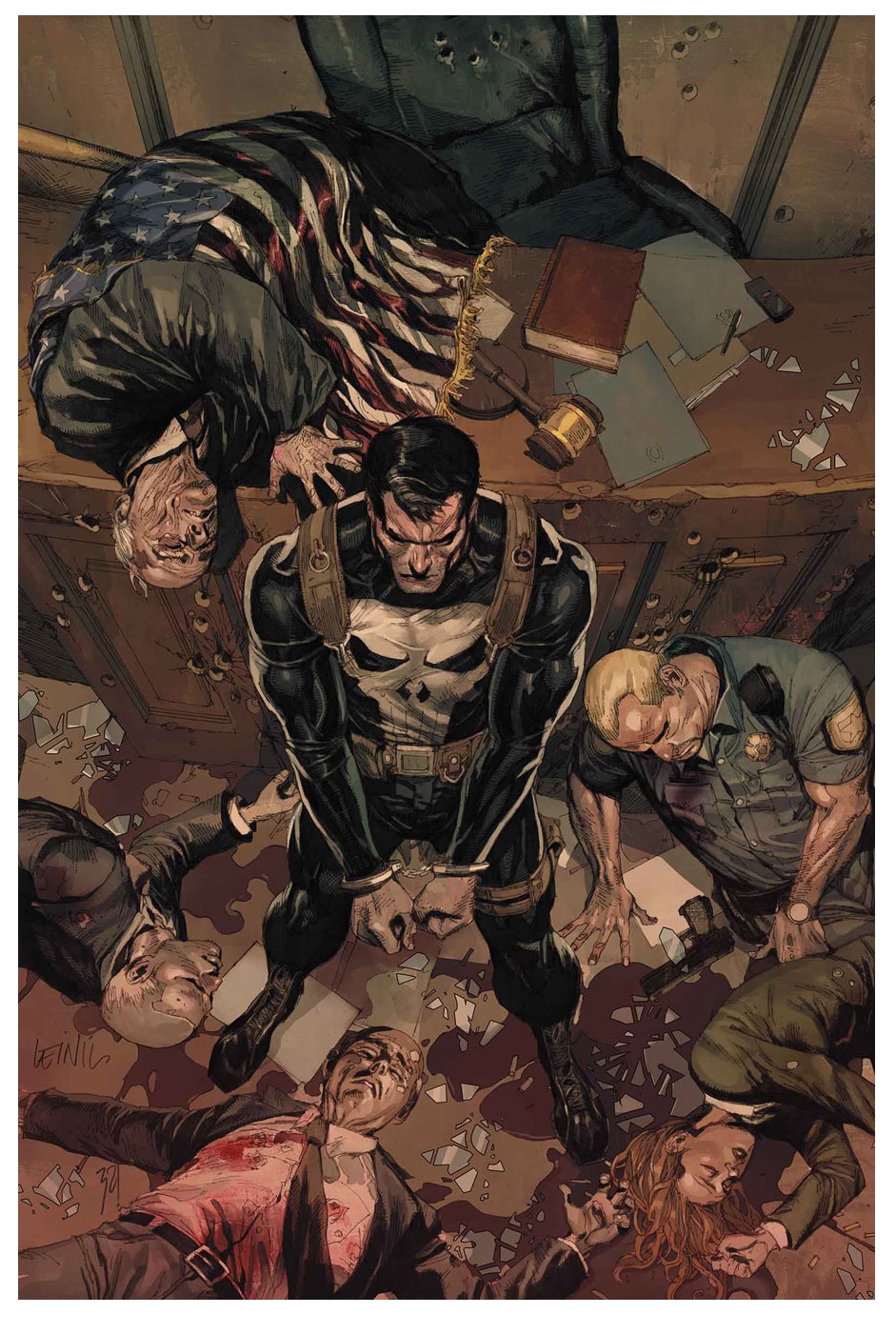 MA: But it seems incredible to me that the character's been around for what, 40 years, and no one's ever done a story about putting him on trial?
MA: But it seems incredible to me that the character's been around for what, 40 years, and no one's ever done a story about putting him on trial?MG: Yeah, that's the thing that I'm a little surprised at too, in fact, I'm particularly surprised it hasn't happened in the last 7 years. You know, I kept waiting like, "Oh my gosh, what if they do this story, or a variation of this story, in the book itself. And I don't know, perhaps the reason is that no one thought that a trial would be very interesting. And truth be told, that was obviously one of the story-telling challenges for me. I don't think I'm spoiling anything, but it can't just be the Punisher on trial and all these witnesses testifying against him. Because that would essentially mean that you had Frank Castle sitting in a chair for the duration of the story, and A) that's very boring and B) it's certainly not the Punisher who's a character of action. So I think the challenge, but also the magic of the story, is the fact that it's one of those obvious ideas like "Oh, well why not just put the Punisher on trial?" but what's less obvious is how you execute it in a way that still makes it feel like an exciting, compelling Punisher story.
MA: Are there any particular past PUNISHER writers that your take on Frank Castle is influenced by?
MG: Yeah, quite a few. I would say Garth Ennis is a big influence, Mike Baron who wrote the Punisher's original monthly series, that was a huge influence on me, Greg Rucka's run, Chuck Dixon's—all those guys are very influential on me and my take on the Punisher. They really helped to define Frank's voice, particularly his inner narration, which is a device I think Mike Baron used to really great effect in that first monthly series. And everyone else has sort of picked up the baton and run with it, and I think now Frank has a very distinctive narrative style that is fun and easy to write.
MA: So, as someone with a background in law, did you ever find any difficulty in writing a protagonist who basically disdains the entire legal system?
MG: No, I practiced law for 5 years, so it's very easy for me to disdain the entire legal system!
MA: (laughs)
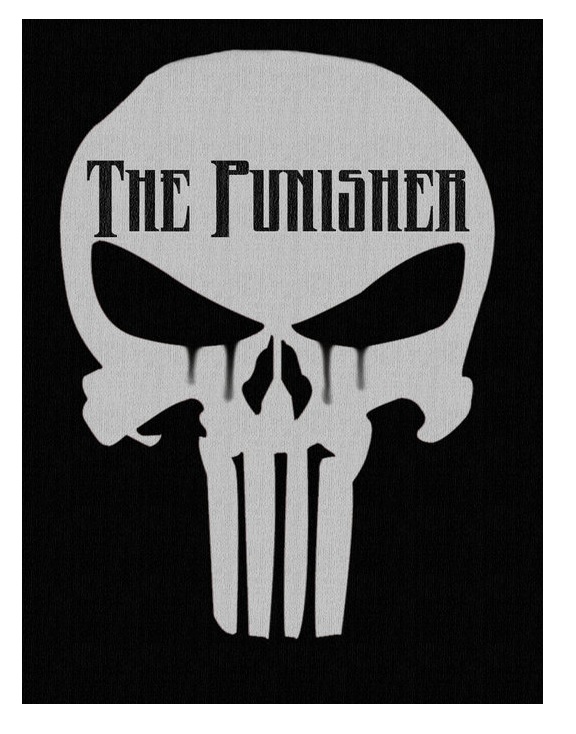 MG: I say that mostly tongue-in-cheek. I think our system actually works pretty well; for all of its faults, it's still probably the best in the world. But with Frank, I think one of the reasons this character resonates is he really sort of taps into a very basic frustration that we all have with the criminal justice system, which is the feeling or the fear that the rights of criminals trump the rights of victims. And in many ways, I think Frank Castle sort of represents wish fulfillment for the readership. That's not to say that the wish on the part of society is for anarchy or vigilantism to run rampant; Punisher is just this little harmless fantasy, essentially. I don't think anyone really wants to trade in the rule of law for what Frank Castle has to offer.
MG: I say that mostly tongue-in-cheek. I think our system actually works pretty well; for all of its faults, it's still probably the best in the world. But with Frank, I think one of the reasons this character resonates is he really sort of taps into a very basic frustration that we all have with the criminal justice system, which is the feeling or the fear that the rights of criminals trump the rights of victims. And in many ways, I think Frank Castle sort of represents wish fulfillment for the readership. That's not to say that the wish on the part of society is for anarchy or vigilantism to run rampant; Punisher is just this little harmless fantasy, essentially. I don't think anyone really wants to trade in the rule of law for what Frank Castle has to offer. MA: You mentioned vigilantism, and I would assume you're trying to bring a more serious look at the legal side of the Marvel Universe than say, Dan Slott's SHE-HULK…
MG: Yeah. (laughs)
MA: But is there a certain point where these Marvel Universe vigilantes sort of defy attempts to impose real-world logic?
MG: It's funny, I think because I have this background in both comics and law, I feel like I could do an entire book all about the repercussions of applying the real-world system of law to comic book conventions and tropes that we sort of take for granted. I'll give you an example; when Spider-Man webs up a thief and leaves him for the cops with a note "From your friendly neighborhood Spider-Man", how do the cops know that the guy is actually guilty? How would a jury actually convict? For that matter, I did a Spider-Man story back when I was working on SPIDER-MAN that asked "How do you even know that it's the same guy in the costume from week to week?" So for me, it's not about applying real-world logic to ruin comic book stories or to frustrate the ability to tell them, it's more like reexamining certain comic book tropes that we take for granted and saying, "Well, let's take the next logical step in that story", let's see the part of the story that we don't get to see between the panels, which is, what happens to all these criminals once they are caught by the good guy? I think there's a lot of fun to be had with that, particularly in today's day and age, where so much of our storytelling in comics and in television and in movies is so meta.
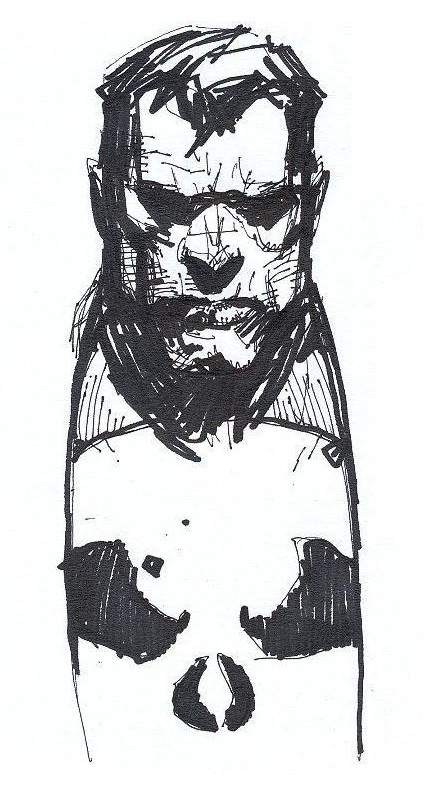 MA: It's interesting that you bring up that Spider-Man conundrum, because Dan Slott actually addressed that in his SHE-HULK run, when Spider-Man has to testify on the stand, and they have to verify his identity somehow. But I assume you would come up with a completely different solution, because that kind of tended towards the absurd.
MA: It's interesting that you bring up that Spider-Man conundrum, because Dan Slott actually addressed that in his SHE-HULK run, when Spider-Man has to testify on the stand, and they have to verify his identity somehow. But I assume you would come up with a completely different solution, because that kind of tended towards the absurd. MG: I guess my sort of attitude is, I don't mind the absurd, particularly in comic books where I think that's part of the fun of writing comics, is you really can sort of stretch the bounds of what's "real". But I think there's different kinds of stories, and I've certainly written different kinds of stories with different kinds of tones before in comics, and I think one of the great strengths of the medium of comics is that it does handle a variety of different tones really, really well. So to me, variety is the spice of life, and certainly the spice of comic books.
MA: I've seen you describe this story in terms of making it "evergreen", so that it's not so tied to the continuity of the moment. Do you ever have any concerns about the fan tendency to demand that stories have to "count"?
MG: You know, it's a great question. I think when you're doing sort of a "first", like "the Punisher on trial"-- like we said, it's never been done before-- I think it will be hard to discount it even though it's an "evergreen" story. Actually, because it's an evergreen it fits into continuity really easily; this could take place during any number of periods of the Punisher's existence. And the truth is, the Punisher's status quo— it's funny, probably more so than a lot of other comic book characters— has tended to remain pretty consistent over the years. It's not like he gets married at some point, or he's handicapped at another point. One of the beauties of Frank is, Frank is Frank. And he's been that character in that way, and sort of that force of nature, for decades really. So this evergreen fits in pretty neatly and it's an easy evergreen to "count" because we're seeing essentially a seminal moment in the character's life—the first time he's actually hauled before a court of law and forced to face justice for his crimes.
MA: Although this is a project that's been in the works for a long time, does its release signify more to come from you with Marvel?
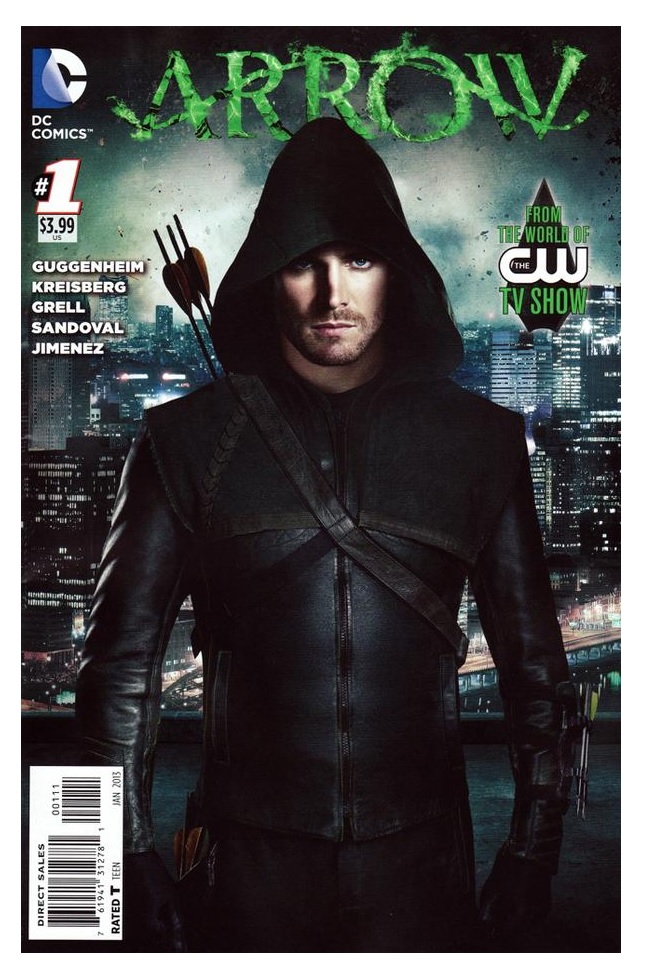 MG: You know, I hope so! I'm talking to Marvel about something else right now. I love working at Marvel; I've maintained all my relationships there, and everyone there is really, really great. I think time will tell. My hope is that this will sort of mark a return to Marvel after 3 years. 'Cause I miss those characters, and I miss working with those guys.
MG: You know, I hope so! I'm talking to Marvel about something else right now. I love working at Marvel; I've maintained all my relationships there, and everyone there is really, really great. I think time will tell. My hope is that this will sort of mark a return to Marvel after 3 years. 'Cause I miss those characters, and I miss working with those guys. MA: Now, the other project you have dropping in September is the ARROW trade paperback, which collects the digital-first comic that went on to be released in print issues.
MG: Correct. And we're also including the special story we did as a free comic book giveaway for San Diego Comic Con last year. So it's a nice little package.
MA: So what will fans of ARROW get out of the comic beyond what the show provides?
MG: Well, for one thing, everything that's in the trade paperback is canon. So, unlike a lot of comic book tie-ins which don't fit into a show's continuity, all these stories are written by myself and the writing staff and do reflect actual continuity. In fact, there are stories that fill in the gaps in some cases between episodes, the scenes and the moments between characters that you didn't get a chance to see. In other instances, it's telling stories that we just simply couldn't pull off on the television budget. For example, in one of the chapters, the Arrow goes to Russia. We couldn't afford to do that last year on the show. So part of it is, if you're a continuity completest, there's a lot of new information to be discovered. And if you're just a fan of good ARROW stories, and you don't get your fill from the television show, we've got some really entertaining ARROW adventures that we couldn't produce on a television budget.
MA: Does your collaboration with the ARROW writing staff differ from the show to the comic?
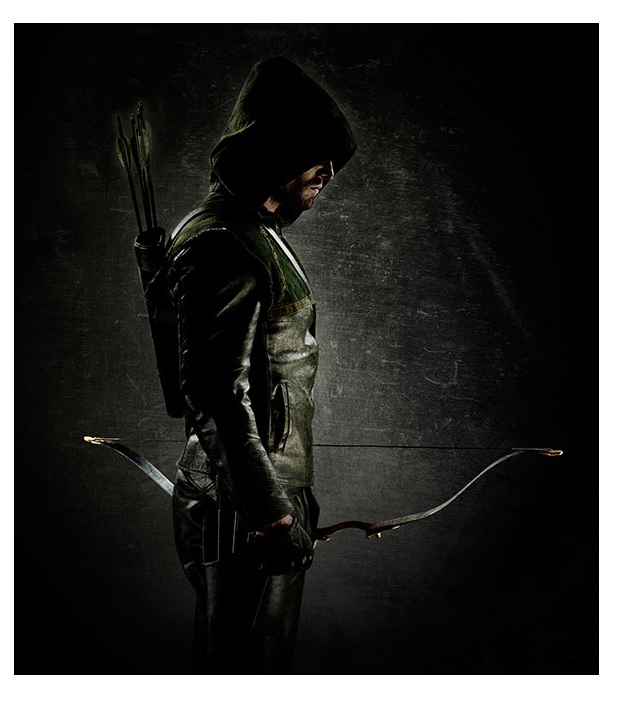 MG: Not that much, because it's pretty much the same writing staff. In a couple of cases, I'll just write the chapters myself. When the other writers on the staff write them, they've got the concept, the pitch for the story, through me. They work with Ben Sokolowski, who's one of our writers on the staff, and he is incredibly helpful in terms of providing quality control from a comic book writing standpoint, and sort of how to tell these stories in a comic book form. And then once it's drawn and everything, and reaches the lettering stage, I'll do a pass just to tweak dialogue and make sure moments are landing, and things of that nature. So it's very similar to the way we work on the show, which is that the writers help develop ideas, pitch them to Andrew Kreisberg and myself, we refine them, we do a pass on the scripts. What's nice for the writing staff is that they get a chance to write without the restrictions of budget, and the restrictions of network notes. I think it's a slightly more pure creative experience for them. And I think as a result, the stories are really crackling.
MG: Not that much, because it's pretty much the same writing staff. In a couple of cases, I'll just write the chapters myself. When the other writers on the staff write them, they've got the concept, the pitch for the story, through me. They work with Ben Sokolowski, who's one of our writers on the staff, and he is incredibly helpful in terms of providing quality control from a comic book writing standpoint, and sort of how to tell these stories in a comic book form. And then once it's drawn and everything, and reaches the lettering stage, I'll do a pass just to tweak dialogue and make sure moments are landing, and things of that nature. So it's very similar to the way we work on the show, which is that the writers help develop ideas, pitch them to Andrew Kreisberg and myself, we refine them, we do a pass on the scripts. What's nice for the writing staff is that they get a chance to write without the restrictions of budget, and the restrictions of network notes. I think it's a slightly more pure creative experience for them. And I think as a result, the stories are really crackling.MA: How has the digital-first model affected the development of the comic?
MG: Hmm, that's a great question. You know, I guess it was sort of a learning curve more than anything else. It wasn't like it was affecting the development of it, it was more like, how do you work within this new medium of digital comics, and still manage to tell the proper amount of story to make it satisfying for a reader once it's in hardcopy form, either as a floppy or as a trade paperback. And I think we cracked that code pretty early on. I think the way the digital format affects things in hardcopy is that once the digital pages-- which are sort of half a comic book page—are put together to make a single hardcopy page, the panels per page ratio is a lot higher, so you're actually telling a lot more story on each page, than you typically would in a "non-digital" comic, if that makes sense. So that's been interesting for me, and in many ways I've sort of gotten spoiled, because when I'm writing digital, I'll allow myself more panels per page than I do when I'm just writing a regular floppy. There's pros and cons to both, but I really do like being able to tell so much story on a single page.
MA: I read recently the ARROW comic is going on a bit of a hiatus; is it going to resume production when the show returns?
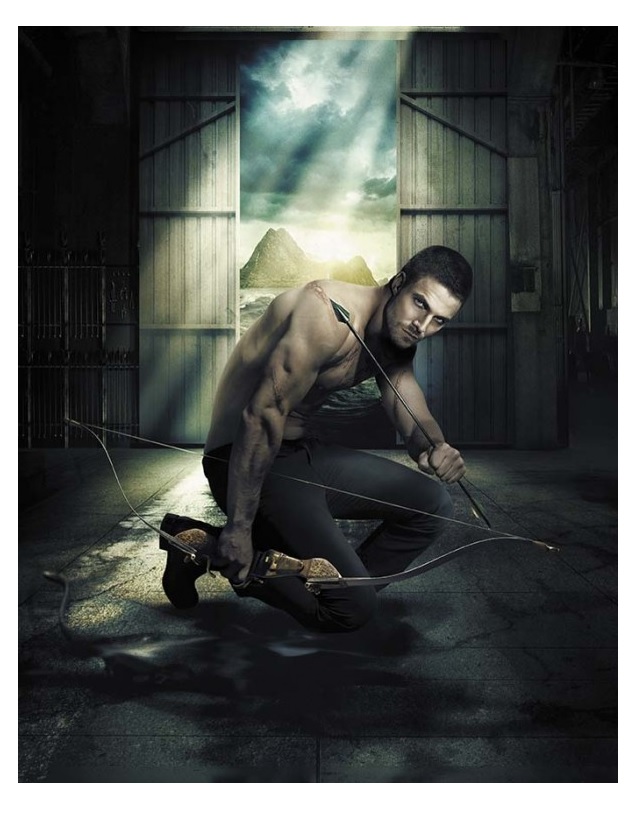 MG: Yeah, we're talking to DC about that right now. I think right now what we're discussing is changing the format slightly; we'd love to do more of a continuous storyline, or longer arcs. For Season 1, with the exception of the last two chapters, all the chapters were self-contained. Which I think is cool, and it certainly makes for a very satisfying digital download, but for myself, and I don't want to speak for DC (but I think I will), it's fun to mess around with things in Season 2. And truth be told, I think I'm the one who is dropping the ball, because I've been meaning to pitch to DC a game plan for the ARROW Season 2 comic book tie-ins, and I admit to getting sidetracked by the show! (laughs)
MG: Yeah, we're talking to DC about that right now. I think right now what we're discussing is changing the format slightly; we'd love to do more of a continuous storyline, or longer arcs. For Season 1, with the exception of the last two chapters, all the chapters were self-contained. Which I think is cool, and it certainly makes for a very satisfying digital download, but for myself, and I don't want to speak for DC (but I think I will), it's fun to mess around with things in Season 2. And truth be told, I think I'm the one who is dropping the ball, because I've been meaning to pitch to DC a game plan for the ARROW Season 2 comic book tie-ins, and I admit to getting sidetracked by the show! (laughs)MA: Speaking of Season 2, is there anything you can tease us about?
MG: Ah, let's see, what can I tease… well, I'll tell you, the show has actually gotten bigger. Which, quite frankly, if you'd asked me last year if I thought that was possible, I'd have told you "No", because we were really straining at the bit just to produce the show given the time and budget that we have, but everyone's come back and we're really firing on all cylinders. The second season I think is bigger and it's a bit more focused in terms of the storytelling. We've made a variety of different character changes; Tommy's death, and also the various changes we've made to Laurel's status quo, and Thea's status quo, will basically connect those characters more to Oliver's world. Same thing is true for Felicity, so that everything is revolving around Oliver in a much tighter way than it was last year. Last year we would occasionally end up with characters siloed off in their own stories, either Thea and Moira, or Tommy and Laurel. And this year, the narrative of the show has gotten a lot more focused. And I think it's made for stronger, better episodes.
MA: This is kind of a big question, but with all the success that you've found in TV and also in movies, why are comics still important to you, and how do you balance the two careers?
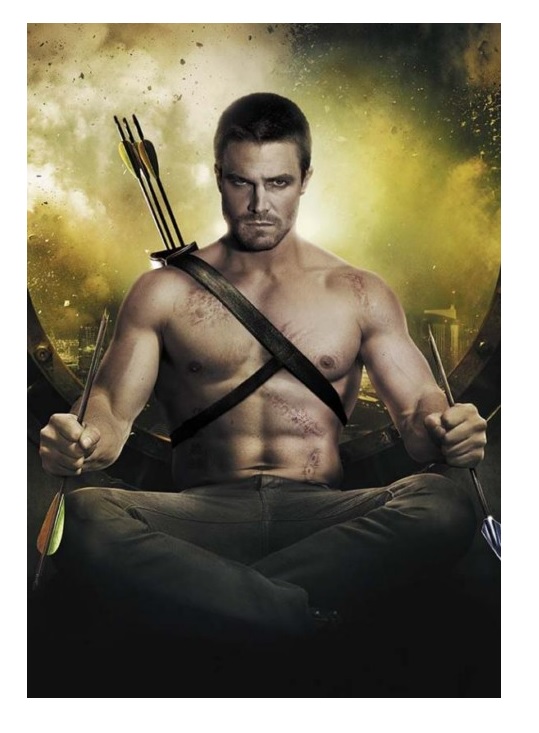 MG: What a terrific question. Well, as far as why comic books are still important to me, I just love the medium. I've always loved the medium. I've always been a huge fan of reading comic books, and I love writing them. I love the art form. And quite frankly, also I really love the people. There's some wonderful, wonderful people both on the editorial side and artists that I've had the good fortune to work with and meet over the course of, I guess now, 8 years writing comics. And they're just people you want to collaborate with. As far as how I find the time, you know, everything for me is all about time management. And the thing that I've sort of been refining over the years is, how much time does it take to work on ARROW, how much time does it take to write a movie, and how much time does it take to write a comic book. With respect to writing a comic book, for me, it's about being disciplined and going "Ok, this week I'm spending outlining the issue, next week I'll spend writing the issue" and if it's a 20-page comic, that means I have to write 4 pages a day, but if I have an outline, I can do that. And then I know how much time in any given day that takes. So it's just pure time management, and just carving out the time it takes to do the work. Also, because shit does happen, having contingency plans and building into your schedule little gaps to catch up when you do fall behind because that's inevitable. I am also just a big believer that if something's important to you, you make the time for it.
MG: What a terrific question. Well, as far as why comic books are still important to me, I just love the medium. I've always loved the medium. I've always been a huge fan of reading comic books, and I love writing them. I love the art form. And quite frankly, also I really love the people. There's some wonderful, wonderful people both on the editorial side and artists that I've had the good fortune to work with and meet over the course of, I guess now, 8 years writing comics. And they're just people you want to collaborate with. As far as how I find the time, you know, everything for me is all about time management. And the thing that I've sort of been refining over the years is, how much time does it take to work on ARROW, how much time does it take to write a movie, and how much time does it take to write a comic book. With respect to writing a comic book, for me, it's about being disciplined and going "Ok, this week I'm spending outlining the issue, next week I'll spend writing the issue" and if it's a 20-page comic, that means I have to write 4 pages a day, but if I have an outline, I can do that. And then I know how much time in any given day that takes. So it's just pure time management, and just carving out the time it takes to do the work. Also, because shit does happen, having contingency plans and building into your schedule little gaps to catch up when you do fall behind because that's inevitable. I am also just a big believer that if something's important to you, you make the time for it.MA: Very cool. So are there any other projects you'd like to mention?
MG: Ah, let's see… I guess two! I always have to do the mental math of what I can talk about, because I'm working on a bunch of stuff right now that hasn't become public yet. But as far as comic books, I've got an ADVENTURES OF SUPERMAN digital 3-parter, so it'll be 3 digital chapters, and a single extra-sized issue when it's published. And Joe Bennett is drawing it, and each day I get a new page from him, and it's just so awesome. You ask why comic books are still important to me; I'm very fortunate that I get answer every day like that, in the form of the art. To see your writing represented in comic book form by a talented artist, that's all the reward you can ask for. And for me it's fun; it's a tale that basically posits the question— you know, the only reason that Superman knows that Krypton is destroyed is because Jor-El told him in the message that's stored in his rocket ship. And the question basically popped into my head; what if Jor-El was either wrong or lying? And what if that was suggested to Superman, and he returns to where Krypton was and it's there? And I don't want to spoil the story, but I thought that was a really intriguing premise.
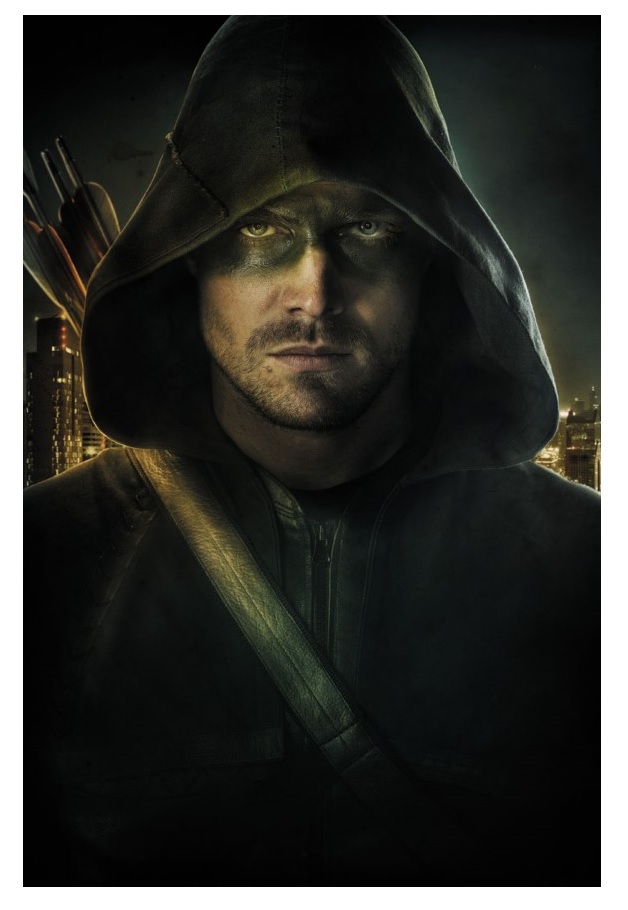 MA: If Jor-El's still there, that'll be an awkward meeting. (laughs)
MA: If Jor-El's still there, that'll be an awkward meeting. (laughs)MG: (laughs) Very much so. Suffice it to say, the answer to that question will be revealed on the cover, and it'll be even more awkward than you realize, because Jor-El's circumstances have vastly changed. So it's really a fun story, and it was an absolute joy to write. I also did a LEGENDS OF THE DARK KNIGHT chapter that we're just waiting on to be drawn, that features the Riddler, and my attempt at taking the Riddler character and putting him on his head a little bit. A lot of my comic books stem from me being a fanboy quite frankly, and just asking certain questions like "What if the Punisher was caught and put on trial?" and "What if Jor-El was lying about Krypton?", and this Batman story really tries to get at "Why does the Riddler always sow the seeds of his own demise by dropping all these clues?" I always try to have an interesting question, but then come up with an even more interesting answer. And then on the film side, on August 7th, PERCY JACKSON: SEA OF MONSTERS comes out. And I'm really looking forward to getting that out into the world. Thor Freudenthal directed it and did an absolutely amazing job, and the cast is fantastic, and I'm really proud of the movie. I think it turned out very well.
MA: It's got to be exciting. And I think the first movie did well, right?
MG: It did. I think it did $300 million worldwide. And obviously the book franchise is pretty massive, and has only gotten bigger since the first movie came out. Because so much time has passed between this sequel and the first movie, we really tried to craft it, not as a reboot by any stretch, but basically to be very new audience friendly, so you do not have to be familiar with the first movie to appreciate the second one. I think there's one line of dialogue that references the first movie, and if you didn't see the first movie, it'll just go over your head. You basically get all the information you need to understand the premise and the world in the opening prologue. So it's an easy viewing experience, even if you haven't seen the first movie, or aren't familiar with the books.
MA: Very cool. Well, that's about all the questions I've got for you…
MG: I love it, great questions man, I really appreciate it.
MA: No problem. I really want to thank you for taking the time to talk with me, and this was a really cool interview.
Matt Adler is a writer/journalist, currently writing for AICN among other outlets. He’s been reading comics for 20 years, writing about them for 7, and spends way, way, too much time thinking about them, which means he really has no choice but to figure out how to make a living out of them. He welcomes all feedback.
Proofs, co-edits & common sense provided by Sleazy G
